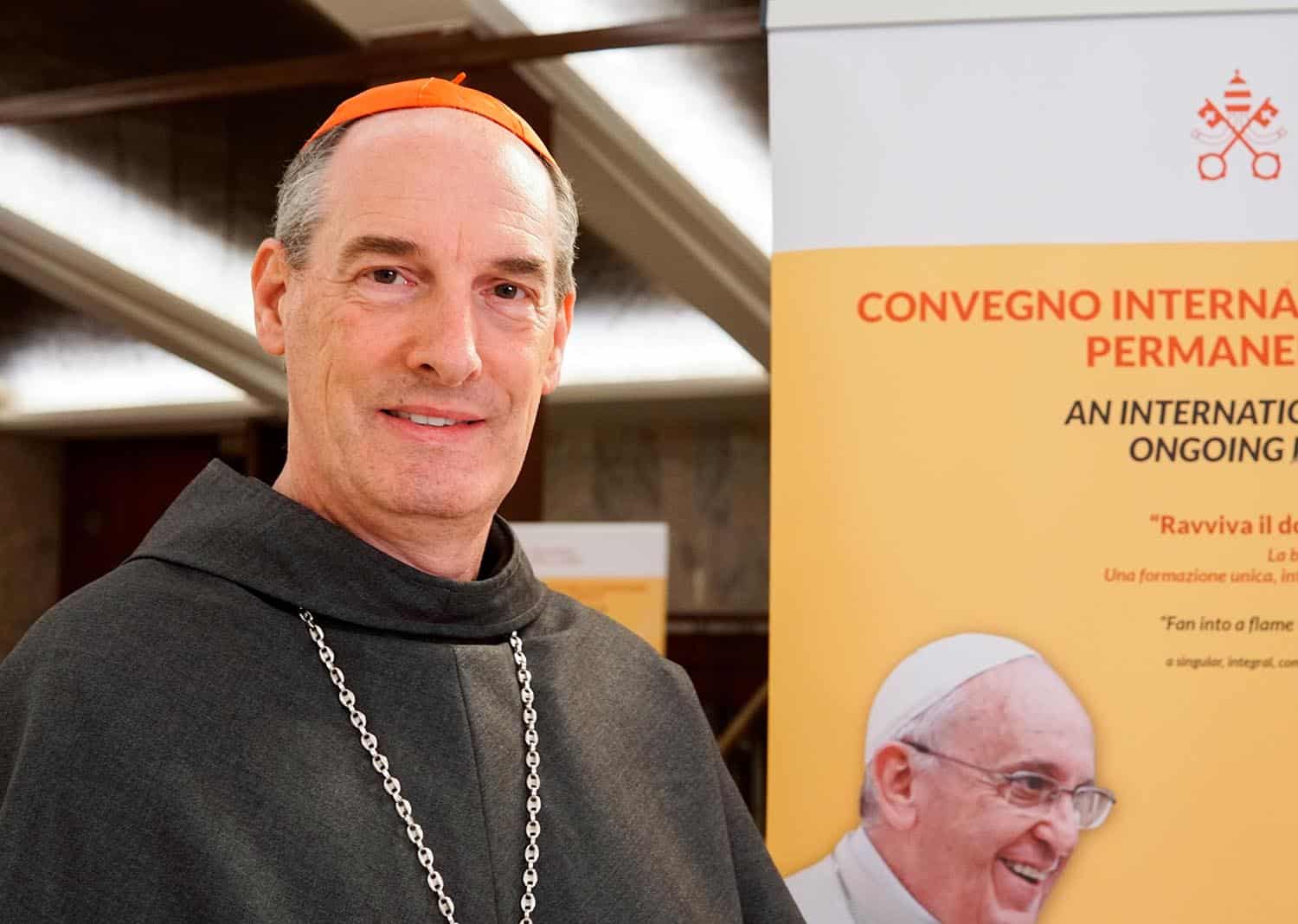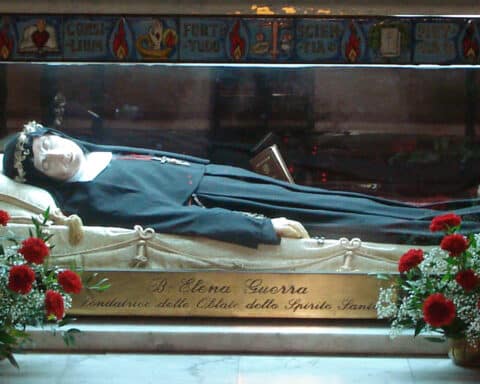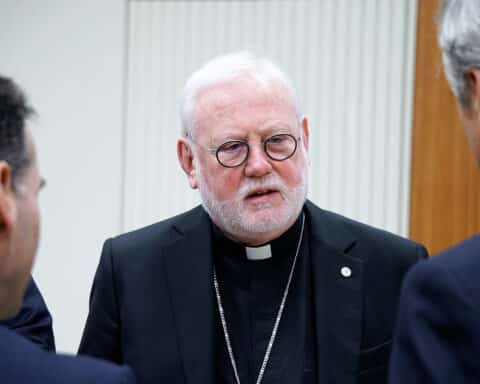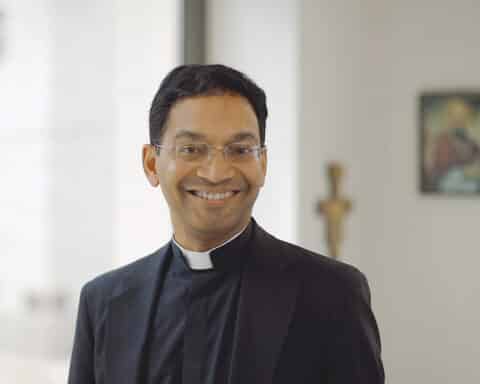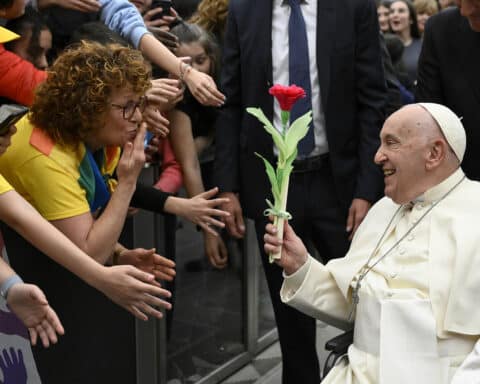VATICAN CITY (CNS) — Catholic priests in the West, overworked and understaffed, need a “change of mentality” to rediscover their calling to be agents of God’s love, a cardinal said.
“For a long time, priests have focused a lot on management and not enough on vision,” leading priests to get bogged down in logistical and bureaucratic tasks rather than dedicate themselves to their ministry, Cardinal François-Xavier Bustillo of Ajaccio, France, told Catholic News Service Feb. 6 during a conference on the continuing education and formation of priests at the Vatican.
“Logistics, organization, structure, these make up part of the responsibilities of a priest, but it seems to me what is lacking is charisma,” he said.
Cardinal Bustillo said priests need to “get out of a pessimistic and fatalistic vision” and instead offer a “more positive, more constructive and above all a more timely vision to an individualistic and materialistic society like ours.”
In 2022, Pope Francis gave priests copies of then-Bishop Bustillo’s book, “Witnesses, Not Officials,” at the chrism Mass on Holy Thursday. The following year, the pope made him a cardinal.
About 1,000 priests from more than 60 countries attended the four-day Vatican conference, at which Cardinal Bustillo was among the speakers. Conference participants met with Pope Francis Feb. 8.
Witnesses of God’s love
Discouraged by declining vocations and falling church attendance, priests often fall into a victim mentality where the amount of work and travel they must undertake to tend to their faithful feels unfair, and the joy of their vocation is stifled, Cardinal Bustillo said.
In part, he said that is because priests are afflicted by the temptation to assume more responsibilities in the face of a shrinking pool of ordained ministers available to share the workload of running a parish or diocese. Yet the mission of priests is “not to save the world but to transmit the presence of God to the people that come through our lives,” the cardinal said.
When a priest must travel to four different parishes to celebrate Mass on Sundays, “he can lose the quality of (liturgical) celebrations, even his health and joy; so maybe we should cut back, maybe we should take a look at the mission, reduce the number of places where one goes,” he said.
A priest is not meant to be a “dealer of the sacred” but a witness of God’s love, Cardinal Bustillo told CNS, which is why priests must invest in cultivating a loving presence in individual interactions and the liturgy.
“When a person far from the Church comes to a funeral, to a baptism, enters into a church and sees a priest, what will there be? A cold, formal rite? Or will there be a rite that communicates life and in which one can see the transcendent?” he asked.
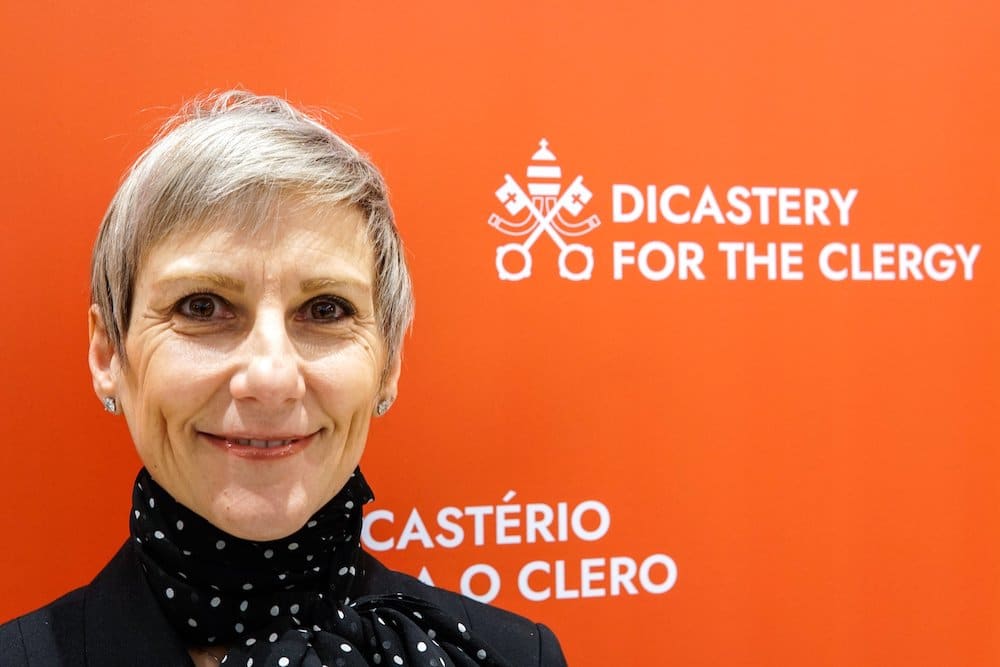
But changing the priestly mentality from worker to witness is not solely the responsibility of the clergy, said Chiara D’Urbano, a psychologist and consultant to the Dicastery for the Clergy who was among the conference’s speakers.
Welcoming environments
Laypeople must also reflect on the figure of the priest to “give him back his humanity,” she told CNS Feb. 7.
“Priests are loaded with so many expectations, as if they could not allow themselves to have friendships, leisure, rest, fatigue,” she said. “We have loaded many expectations onto priests, to be capable, to be calm, to be good natured,” and “priests feel these expectations on them.”
D’Urbano told CNS that priests will come to her and say, “I am happy with my path but I feel sad, I am anxious,” and that speaking with a psychologist gives priests a space to speak openly without fear of being judged, even on difficult subjects like questioning their own vocation.
When a priest becomes discouraged in his ministry, one cannot say “the priest doesn’t pray enough, he wasn’t mature, he wasn’t motivated,” she explained. “There is no one explanation,” so psychologists must assess the lives of priests holistically.
“We can no longer only reflect on the priest, about the symbol of the priest, about what he should do, about his personal maturity, rather we must think about his environment, that is, how he is being formed,” she said.
Priests and seminarians, she noted, need “welcoming, non-judgmental environments to help them open up, to be honest and to be truly accompanied” by fellow priests, seminarians and psychologists.
“Does their environment foster friendship and trust between seminarians, for example?” She asked. “Otherwise, the priests of tomorrow will be strangers to one another.”

